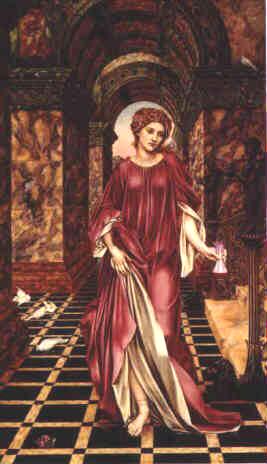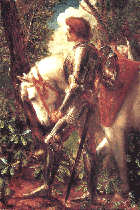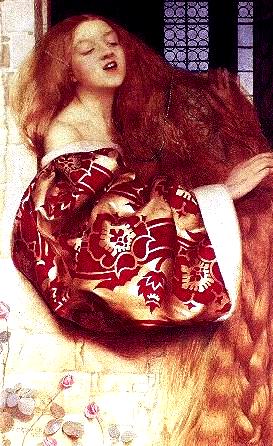1215:- In Spain, the Castilians and Aragonese united to meet the Muslims in the climatic battle of Las Navas de Tolosa. Although the reconquest of the peninsula from the Muslims would take another two hundred and eighty years, the Muslims never again were a real threat to the Christians of Spain.
Immediately after participating in Las Navas de Tolosa, Pedro II of Aragon went beyond the Pyrenees Mountains to protect the rights of two of his nieces, whose lands had been seized by Simon de Montfort. Peter was defeated and killed in the battle of Muret, and de Montfort was now unopposed in his conquest of the lands of southern France. Peter's son and heir, Jaume the Conqueror, wrote an autobiography in which he talked about the day of the battle. He said that his father had gotten so drunk the night before that two of his knights rode into battle on either side of him so that he wouldn't fall off his horse.
Meanwhile, Innocent III was trying to break the power of the German emperor, Otto of Brunswick, who was supported by his cousin, King John of England. Innocent III abandoned the papal-German alliance that had prevailed since Otto the Great had liberated the papacy in 1000, and returned to the old alliance with the French. He had Frederick II crowned Holy Roman Emperor as a counterweight to Otto. The combined armies of Philip Augustus, King of France, the German supporters of Frederick II, and allies of Innocent III met that allied forces of King John of England and Otto of Brunswick in battle at Bouvines (in modern Belgium). Otto and John were decisively defeated.
This was the last straw for the English nobles, who rebelled against John. The rebellion was ended by the negotiation of William Marshall, who arranged that John would seal a document recognizing certain noble privileges that were to be considered beyond the power of the monarchs to end. John agreed to this document, called Magna Carta, or "Great Charter," which is regarded as the foundation of English liberties in a meeting with the barons at Runnymeade. Innocent III later declared the agreement null and void, but this made no difference in the long run.
With his immediate enemies under control, Innocent III called the Fourth Lateran Council to reform the Church to meet the problems of the day. It passed many important matters, but those with the most lasting effects were the establishment of the Inquisition, designed to find people who held beliefs contrary to Church doctrine, and end their disagreement one way or another, and the recognition of the Mendicant Friars, the Franciscans and Dominicans, men (and women) who were to practice the monastic virtues but to live and work in the world rather than being secluded in monasteries and convents.






